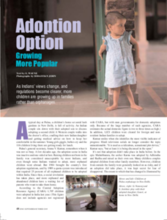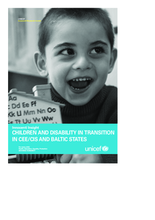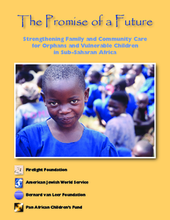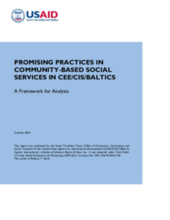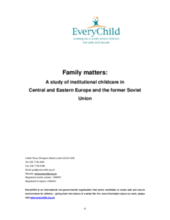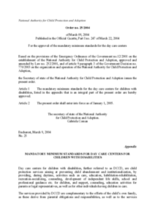Displaying 601 - 610 of 665
Minimum standards for day care centers in Romania.
Documenting shifting attitudes on adoption in India. Highlights persistent difficulties in national policy reform.
Report presents and analyzes new research and data around children with disabilities in the region, the effects of institutional care, and the need for family support services.
Reports on the financial costs of residential care for children in the Republic of Moldova. Highlights significant financial inefficiencies and advocates for closure of residential institutions.
A brief document advocating for the strengthening and support of community based responses to children and families affected by HIV/AIDS in Africa.
This paper analyses the financial costs of residential services as compared to community-based services in Moldova. It also addresses the negative effects of institutional care on the well-being of children and society as a whole.
Provides a framework for analysis of community-based social welfare services and linkages with government structures. Includes analysis of alternative care provision, de-institutionalization, programming for children with disabilities, standards of care, and overall social welfare sector reform.
Reports on the status of children living in residential facilities in Nepal. Includes detailed survey instruments in appendicies.
A report discussing the advent and perpetuation of institutional care in Central and Eastern Europe and the Former Soviet Union prior to and since the end of the communist regime. It also provides examples of family-based care as models of care to substitute institutional care and offers recommendations to donors, NGOs and governments for child care reform based on their experience in CEE and FSU.
Outlines minimum standards for the operation of a day care center for children with disabilities in Romania.


